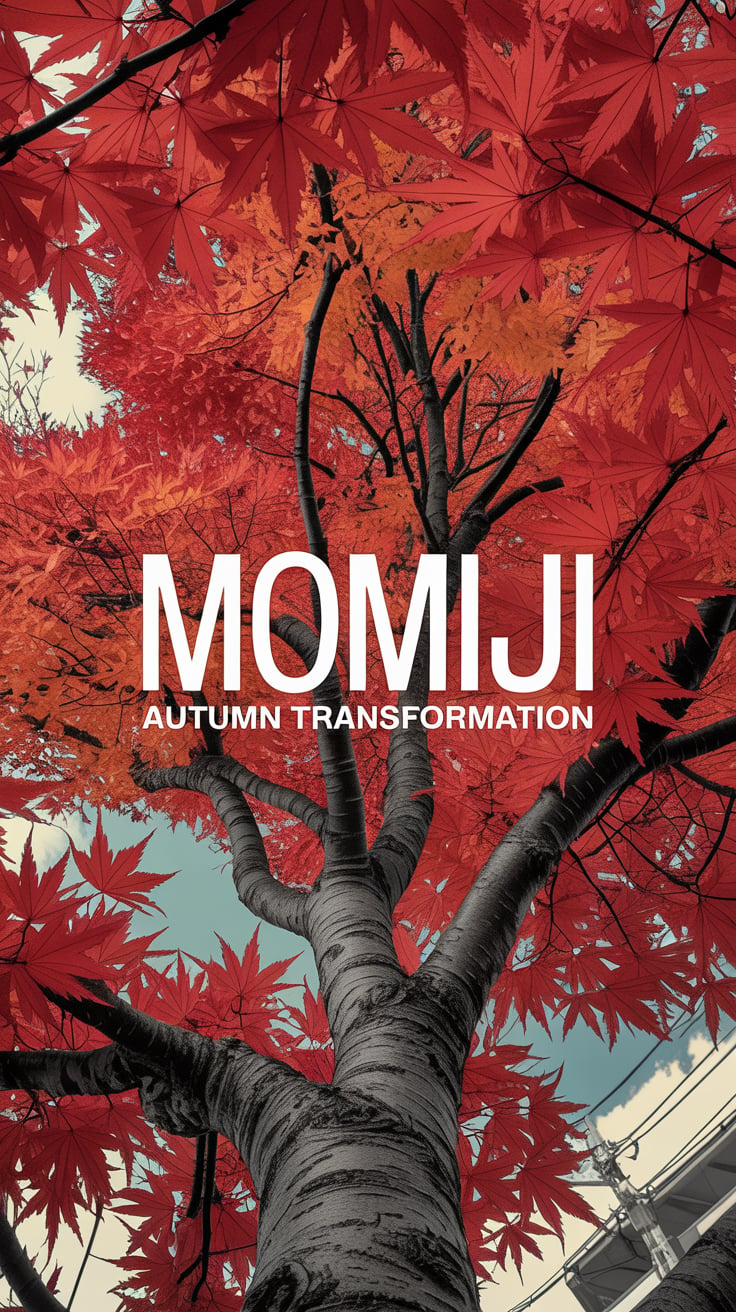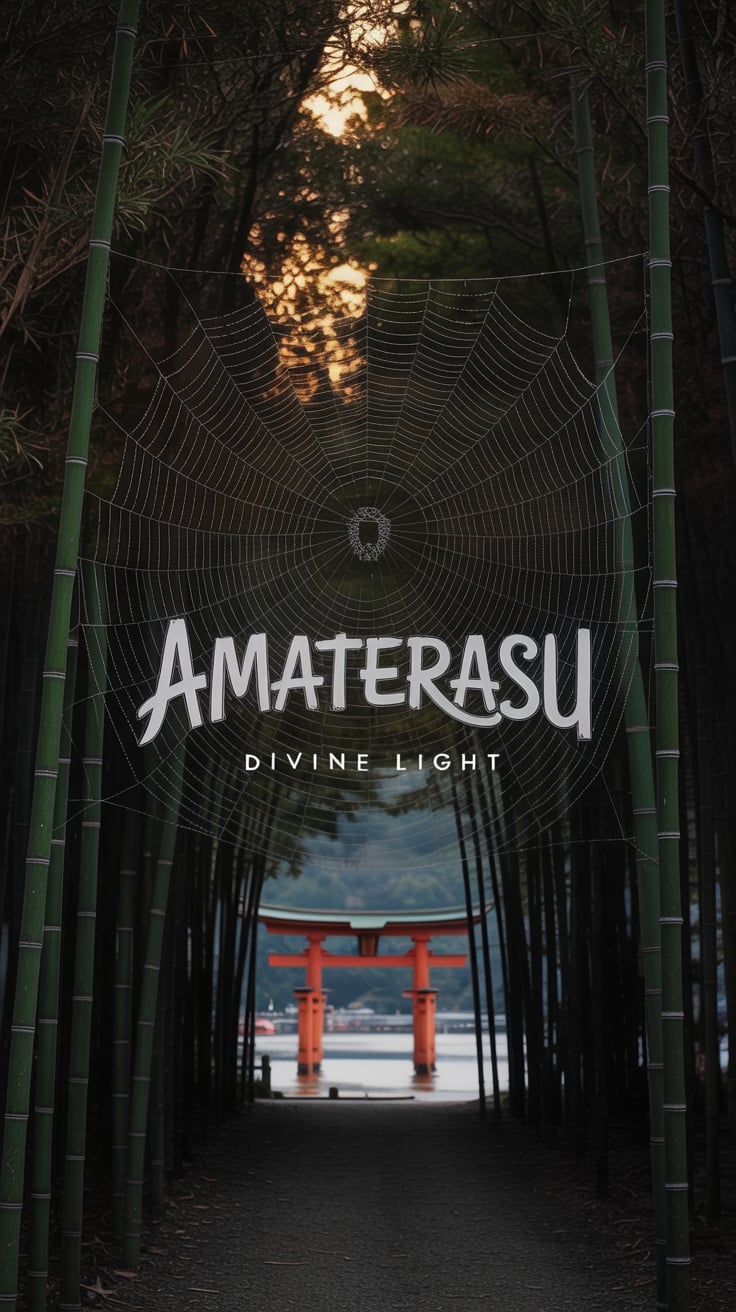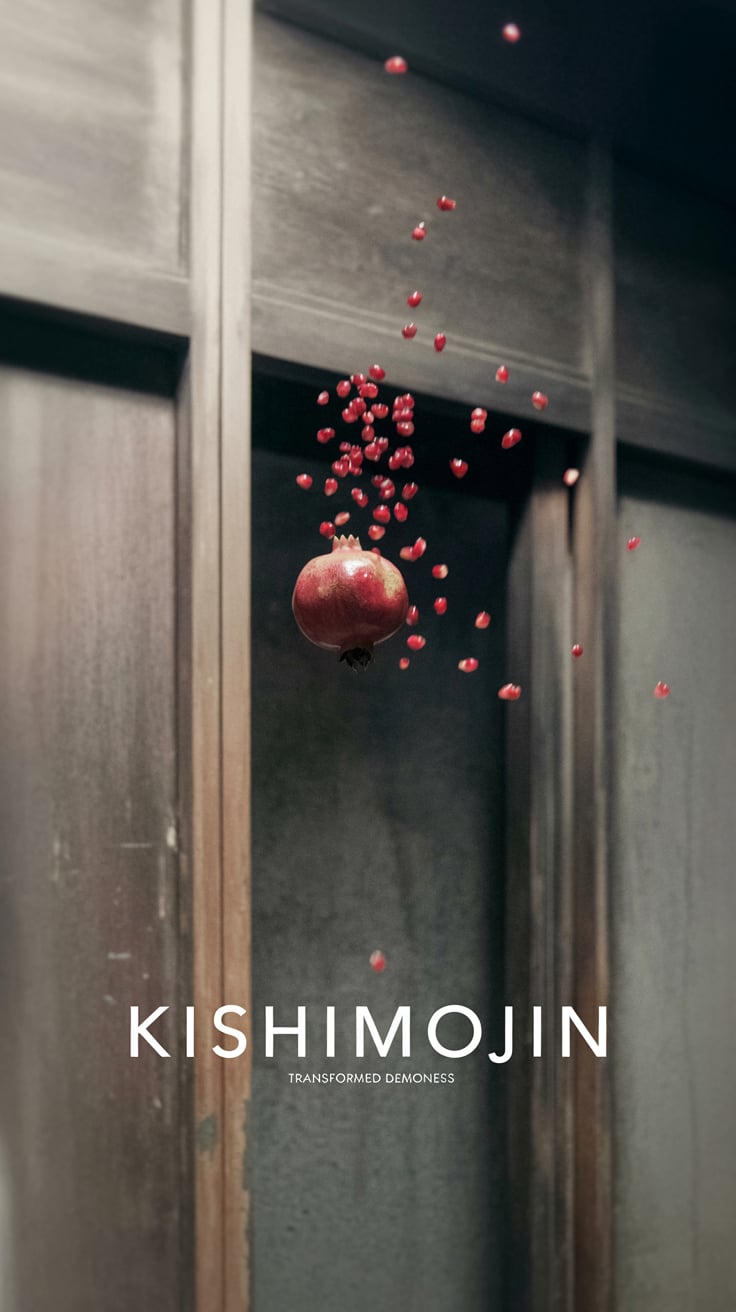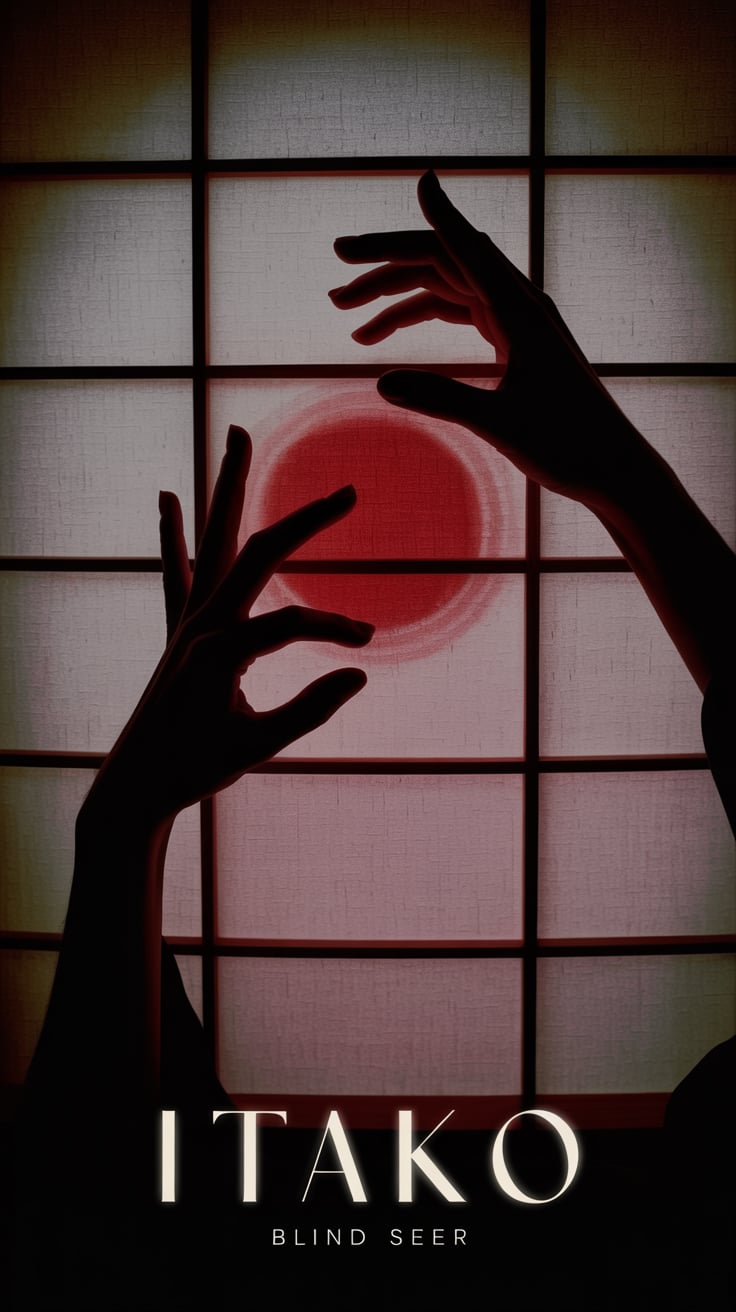15 Powerful Japanese Witch Names: Ancient Folklore & Spiritual Origins
Please note that posts on this site may contain affiliate links
Looking for Japanese witch names that honor real traditions? Whether you’re seeking a magical identity, naming a character, or exploring Japan’s rich magical heritage, these names connect you to powerful feminine figures from Japanese folklore and history. Each carries a specific energy and story, from ancient shamanesses who led Japan to mountain spirits with extraordinary abilities. These names respect cultural origins while offering meaningful options that tap into genuine Japanese spiritual traditions.
The Meaning Behind Japanese Witch Names
Names in Japan carry weight you can feel between your fingers. When parents name their children, they select specific kanji characters that represent hopes, family connections, and protective qualities. The symbols matter just as much as how they sound. Many families visit shrines to ask which character combinations will bring good fortune, showing how deeply naming connects to spiritual practice.
Japan doesn’t have an exact match for Western witches. What we might call a “witch” appears in many forms throughout Japanese stories and traditions. Divine empresses, mountain spirits, fortune tellers, shrine maidens, and healers all show powers that Westerners might label as witchcraft. This creates a rich variety of magical feminine figures to draw from when looking for a meaningful name.
Understanding cultural context changes everything about how you approach magical naming. Around the world, many traditions believe a true name holds power. Know something’s true name, and you gain influence over it. That’s why choosing a magical name involves more than picking something that sounds cool. The name you choose becomes part of your spiritual identity and shapes how your magic works.
Your everyday name probably isn’t your magical name. I’ve found having a separate magical identity creates helpful boundaries between different parts of life. A magical name works as part of your spiritual self, creating space between daily concerns and spiritual work. It’s similar to how you might act differently at work versus home, except this separation helps you focus completely on spiritual growth without everyday worries getting in the way.
Looking through thousands of possible names can feel overwhelming, like standing in front of an endless wall of options with no idea where to start. Having names organized by meaning and origin gives you a clearer path, helping you find names that match what you want your magic to accomplish. When it comes to picking the perfect witchy name, organization is totally a game-changer! You can actually find something that resonates with your practice instead of just going with whatever sounds good.

Powerful Female Rulers & Shamanesses
Himiko (卑弥呼)
Picture this: the sun rises over misty mountains in ancient Japan. Through the fog steps a woman whose presence commands attention before she speaks a word. This is Himiko, Japan’s first recorded ruler who revolutionized history through spiritual power.
Himiko wasn’t simply a political leader. She blended leadership with spiritual authority in a way Japan had never experienced before. Chinese records from the 3rd century describe her practicing “sorcery,” though this likely referred to traditional Japanese spiritual practices that foreigners didn’t understand.
What makes Himiko truly fascinating is her strategic use of mystery. She lived completely secluded from public view with a thousand female attendants. Only a single man was permitted near her, serving as her messenger to the outside world. Her heavily guarded palace wasn’t just for protection. It created an intentional mystique that strengthened how people perceived her authority.
This physical separation served a practical purpose. By keeping herself apart from everyday politics, she maintained a spiritual purity that gave her words more weight. The boundary between spiritual and physical worlds she created remains a fundamental concept in Shinto practice even today.
Though curiously absent from Japan’s own historical records (which raises interesting questions about who controlled historical narratives), her impact on Japanese spiritual traditions is undeniable. Historical sources credit her with establishing the Grand Shrine of Ise, Japan’s most important Shintō sanctuary. Walking through Ise today means following a path first created by Himiko’s spiritual vision.
For magical practice or character naming, connecting with Himiko means tapping into feminine leadership that works outside typical power structures. Her name carries the energy of someone who rules through spiritual authority and calculated boundaries rather than force. When witches today invoke her energy, they often feel a calm confidence that comes from within rather than needing outside approval. I tried a Himiko-inspired meditation last month and felt centered for days, like wearing invisible armor against everyday chaos.
Those who choose Himiko’s name without understanding her dedication to spiritual purity might find their own sacred spaces mysteriously disturbed. Remember, she maintained a thousand female attendants and allowed only one male messenger near her for a reason. Boundaries matter to this powerful spirit.
Empress Jingu (神功皇后)
Empress Jingu stands at the crossroads of myth and history, one of Japan’s most formidable female figures. Widow to Emperor Chūai and regent for her son, her story blends historical record with supernatural legend. Historical chronicles describe her conquest of Korea without bloodshed after her husband’s death, using sacred jewels that controlled ocean tides to aid her military campaign.
The most astonishing part of her legend? Her unborn son supposedly remained in her womb for three years until she completed her conquest. This child would later become Hachiman, the god of war, worshipped at shrines throughout Japan even today.
What often gets overlooked about Jingu is how she used symbols of power differently from male rulers. While emperors relied on visible displays of strength, Jingu manipulated natural elements and used pregnancy itself as a form of protection during warfare. Her story shows how feminine power in Japanese mythology operates through patience, timing, and connection to nature’s cycles rather than brute force.
Jingu’s name carries the energy of strategic patience, maternal protection, and the power that comes from working with natural forces rather than against them. Perfect for those drawn to protective magic that requires careful planning over quick results. I’ve found her energy particularly helpful when working with moon phases for long-term protection spells.
Borrowers of Jingu’s name who lack patience may find their carefully laid plans mysteriously delayed by three years, her legendary pregnancy’s duration. This empress doesn’t lend her power to those seeking quick results without proper preparation and respect for natural timing.
Nakayama Miki
In 1820s rural Japan, a farmer’s wife named Nakayama Miki sat with her family during a healing ritual when something extraordinary happened. During their prayers for her son’s recovery, Miki felt a presence enter her body. Unlike typical possession experiences in Japanese folk religion where the spirit eventually departs, this presence announced it would stay permanently. The voice declared: “I am God. I want to save all humankind.”
This moment transformed Miki from an ordinary peasant woman into what she believed was a living vessel for God. What makes her story so compelling isn’t just the supernatural claim, but how she navigated the intense skepticism surrounding her. Her husband initially called a Buddhist priest to perform an exorcism, thinking she was possessed by a fox spirit or demon. When that failed, he demanded she return to her household duties and forget these divine notions.
Yet Miki stood firm in her conviction. Over decades, she gradually built a following by demonstrating practical compassion that matched her spiritual claims. She freely shared food from her family storehouse during famines when other wealthy families hoarded supplies. Her healing practices produced results that villagers couldn’t explain away. I love how she built credibility through consistent action rather than grand declarations, a reminder that our daily choices often speak louder than our words.
Miki’s religious movement, Tenrikyō (天理教), became one of Japan’s most successful new religions precisely because it addressed practical human suffering. She focused on alleviating poverty, illness, and social discrimination rather than abstract theological concepts. By 1867, government officials recognized her growing influence and attempted to suppress her movement, burning her scriptures and arresting followers. Miki continued teaching privately, never wavering in her belief that she spoke with divine authority.
Perhaps most remarkable was her literary output. Despite having no formal education, Miki composed 1,711 poems known as the Mikagura-uta that became central to Tenrikyō worship. These simple verses communicated complex theological ideas through accessible language, allowing even illiterate followers to memorize and pass on her teachings. This approach to religious education shows how powerful clear, straightforward communication can be when trying to share important concepts.
For modern spiritual seekers looking to connect with feminine divine energies, Miki offers a fascinating model that balances personal conviction with practical service. Her story reminds us that spiritual authority comes not from claiming special status but from demonstrating consistent care for others, especially during difficult times.
Those who claim Miki’s name while hoarding their own resources or knowledge should beware: this spirit founded her entire movement on selfless sharing during times of famine. If you invoke her but fail to embody her generosity, expect your personal storehouse to mysteriously empty until you learn her lesson of abundance through giving.
Mountain Witches & Supernatural Beings

Momiji (紅葉)
When maple trees shed their leaves in autumn, you can almost feel the presence of Momiji, the fierce mountain witch whose name means “maple leaves” in Japanese. Her name captures both her striking beauty and the seasonal magic she controls.
In Japanese folklore from the Muromachi period (1336-1573), Momiji was no ordinary spirit. She used her powers to disguise herself as Princess Sarashina to avoid being killed by the samurai Koremochi. This wasn’t just about survival, but a classic battle of wits between human and supernatural forces. Koremochi only discovered her true identity through a dream message from the war god Hachiman, who gave him a holy sword specifically to defeat her. Even with this divine intervention, the stories tell how Momiji proved incredibly difficult to overcome.
Japanese mythology researchers note that her story became so culturally significant that it inspired the noh play “Momijigari” (“Maple Hunting”), which later made history as Japan’s first narrative film in 1899. This film is now considered an Important Cultural Property in Japan, showing how deeply Momiji’s character is woven into Japanese artistic tradition.
If you’re considering Momiji as a magical name, you’re connecting with more than just a pretty word. Her name carries the energy of transformation that happens during autumn, when everything changes color before winter arrives. I love how the vibrant red maple leaves remind me of her fierce, protective nature! This name works especially well if you practice magic tied to seasonal transitions or fire element work, since Momiji embodies that perfect balance of beauty and power that makes autumn leaves so captivating.
Those who adopt Momiji’s name without respecting her mastery of disguise may find themselves unexpectedly exposed when they most need privacy. This mountain witch could fool even divine intervention until the proper season (autumn maple viewing) revealed her true nature. She doesn’t tolerate artificial identities or incomplete transformations.
Suzuka Gozen
Hidden in the rugged Suzuka Mountains lived Japan’s most compelling bandit queen, whose real-life story evolved into supernatural legend. Historical records from the 13th century describe a beautiful 28-year-old woman who commanded a band of outlaws targeting merchants carrying valuable goods like mercury and imperial tributes. This wasn’t just any small-time operation; she controlled a significant territory and developed a fearsome reputation.
Known by the nickname “Tate Eboshi” for the noble headgear she wore with rebellious mockery, Suzuka Gozen stood out as someone who deliberately played with symbols of power. Her base in the mountains gave her a tactical advantage against imperial forces, while the spiritual reputation of the region added another layer of protection. The remote Suzuka range had long been associated with mountain ascetics, shrine maidens, and spiritual practitioners, creating the perfect backdrop for her legend to grow beyond ordinary human dimensions.
What makes her story fascinating is how it transformed over time. As tales spread through villages and towns, she evolved from bandit leader to something between human and divine. Some accounts painted her as a celestial maiden similar to angels, keeping a hidden mountain palace where she lived in luxury stolen from the wealthy. I love how she went from outlaw to almost goddess status, proof that women who break rules have always captivated our imagination!
Other storytellers described her as an oni (demon) or kijo (monstrous woman), suggesting that her actions were too extreme to be those of an ordinary person. This pattern appears frequently in Japanese folklore when discussing powerful women who operate outside social norms. Their strength gets reframed as supernatural, either to diminish their humanity or to explain abilities that seemed impossible for women to possess in patriarchal societies.
The mountains themselves influenced how people perceived Suzuka Gozen. The Suzuka range has always been considered spiritually significant, with its fog-wrapped peaks and hidden valleys creating natural boundaries between the physical and spiritual worlds. As a name for magical practice or character creation, Suzuka Gozen connects to wildness, rebellion, and the fascinating space where outlaw meets deity, making it perfect for those drawn to figures who defy categorization.
Travelers carrying excessive wealth while wearing Suzuka Gozen’s name might find their valuables mysteriously missing after foggy nights. This legendary bandit queen redistributed imperial tributes for a reason, and she doesn’t appreciate those who claim her rebellious spirit while hoarding resources that could benefit many.

Yamauba (山姥)
Deep in Japan’s forested mountains lives Yamauba, a mountain witch with two very different sides. Folklore scholars describe her by her long, wild hair that shimmers between white and gold, a visual reminder of her connection to both winter snow and autumn harvests.
What makes Yamauba truly fascinating is how she tests travelers. In many stories, she appears as a hungry monster waiting to ambush people on mountain paths. One tale tells of a woman who seems kind and offers to help with childbirth, only for her true intentions to surface: she plans to eat the newborn baby. These stories served a practical purpose, warning people about the real dangers of mountain travel in ancient Japan.
But Yamauba contains multitudes. By the 1600s, she became known as the mother of Kintarō, Japan’s famous child hero with incredible strength. This motherly role reveals her nurturing side. She raised this extraordinary child in the wilderness, teaching him to survive and thrive. I love how she embodies that perfect balance of fierce protection and deep nurturing that shows up in so many powerful feminine figures!
People also believed Yamauba could read minds, making her impossible to trick. This made her particularly effective as a guardian of mountain boundaries, where the natural and supernatural worlds meet.
As a magical name, Yamauba connects you to untamed feminine power, the wisdom that comes with age, survival skills, and nature’s raw strength. She represents the uncomfortable truth that creation and destruction often come from the same source. Those who work with moon-centered magic might find special connection with her, as she walks the mountains at night when most humans fear to tread.
Those who adopt Yamauba’s name while harboring secret intentions find their thoughts mysteriously broadcast to everyone around them. This mountain witch reads minds effortlessly and has no patience for deception. If you claim her fierce maternal protection, be prepared to have your true nature exposed under the moonlight.
Japanese Goddesses with Witch-Like Powers

Amaterasu (天照)
Every morning when sunlight fills my room, Amaterasu comes to mind. She’s Japan’s sun goddess, and her name literally means “shining in heaven.” Japanese language scholars note that looking at her name in kanji, you see 天 (heaven) and 照 (illuminate), perfectly capturing what she represents – divine light.
Amaterasu shows her true power in the story of her retreat. After her brother Susanoo caused chaos in heaven, she hid inside a cave. This single action plunged both heaven and earth into complete darkness. The world fell into chaos until the other gods worked together, using dancing and laughter to coax her out. When she finally emerged, light returned to everything.
I love how this story speaks to something we all understand – sometimes we need to retreat when things get overwhelming, but isolation has consequences beyond ourselves. Just like when you stay in bed all day with the curtains closed, the world outside keeps spinning, but your personal world stops.
As Japan’s most important deity, Amaterasu stands for more than just sunshine. She represents creation, order, cleanliness, and feminine power. Japan’s imperial family traces their ancestry directly to her, showing just how central she is to Japanese spiritual tradition.
For anyone thinking about using a deity-inspired name in their practice, Amaterasu connects you to light, truth, and the life-giving energy of the sun. When working with her energy, try sitting in direct morning sunlight with your eyes closed, feeling the warmth on your skin as you breathe deeply – it’s the simplest way to connect with her presence.
Those who casually adopt Amaterasu’s name while living in perpetual disorder should prepare for unexpected exposures. As Japan’s highest deity, she values cleanliness and order. Disrespect these principles while carrying her name, and you might find all your hidden messes suddenly illuminated for everyone to see.
Kishimojin (鬼子母神)
In a small temple tucked away in Tokyo’s Ikebukuro district, you’ll find a powerful figure of transformation. Visitors to her shrine note Kishimojin stands with a child in one arm and a pomegranate in the other, showing us what happens when we face our own darkness.
Her story starts in a place most of us don’t like to acknowledge. She began as a demon who stole and ate children to feed her own thousand offspring. Think about that for a minute. She represents the most frightening parts of ourselves – the capacity for selfishness so extreme it hurts others.
Everything changed when Buddha hid one of her children. When she couldn’t find her baby, she experienced the same panic and grief she had caused countless parents. This moment broke through her self-absorption. She finally understood what she had been doing to others, and it changed her completely.
What makes Kishimojin so useful for shadow work is how she transformed without denying her past. She didn’t pretend to be someone new. Instead, she redirected her fierce maternal instinct toward protecting all children, not just her own. I love how her story reminds us that our protective instincts can either guard what’s precious or become possessive and harmful, depending on where we point them.
For anyone working with difficult emotions or trying to change harmful patterns, Kishimojin offers a practical model. She shows that transformation happens through direct experience, not intellectual understanding. Notice how she didn’t change because someone lectured her about morality. She changed because she felt what others felt.
In Japanese tradition, she’s now seen as an aspect of Kannon, the goddess of mercy. Her pomegranate symbolizes both fertility and the potential for growth hidden within challenges.
As a magical name, Kishimojin connects to several practical applications:
- Protection spells for children or vulnerable people
- Shadow work focused on acknowledging harmful patterns
- Maternal energy and parenting magic
- Personal transformation through empathy rather than willpower
If you’re struggling with parts of yourself you don’t like, Kishimojin’s energy helps you see those traits as potential strengths when properly channeled. For beginners just starting to explore shadow aspects of magical practice, she offers a compassionate entry point, showing that even our darkest qualities contain seeds of protection and strength.
Those who take Kishimojin’s name without confronting their own shadow aspects might find their greatest fears manifesting unexpectedly. This transformed demoness knows that true change comes only through facing your darkest tendencies. If you avoid this work while claiming her name, she may arrange lessons that force you to experience what you’ve inflicted on others.

Sacred Shrine Maidens & Mediums
Izumo-No-Okuni
On the banks of Kyoto’s Kamo River, a revolutionary story took shape around 1578. Historical accounts reveal Izumo no Okuni began her journey as a miko (shrine maiden), performing sacred dances that connected humans with the spirit world. But she saw something more in these movements than just religious tradition.
Okuni broke the boundaries of what temple dancing could be. She created kabuki (which literally means “the art of singing and dancing”) by blending sacred movements with entertainment that ordinary people could enjoy. Her vision was so powerful that she gathered women from lower social classes to join her all-female performance group. What started as religious expression transformed into Japan’s most influential theatrical tradition.
The performances created by Okuni’s troupe became wildly popular. People would gather along the riverbed to watch these women tell stories through movement and song. I love how she basically invented her own art form when the existing options didn’t give her enough creative space. These shows weren’t just entertainment, they fundamentally changed Japanese cultural expression for centuries to come.
As a magical name, Okuni connects to creative innovation, artistic expression, female collaboration, and transformation through performance. It carries the energy of someone who takes traditional spiritual practices and finds new ways to make them relevant and accessible.
Performers who claim Okuni’s name without honoring her revolutionary spirit might find their creative endeavors mysteriously falling flat. This shrine maiden transformed sacred dance into accessible art for everyone, so if you invoke her while maintaining elitist barriers to your creative work, expect your audience to mysteriously disappear until you learn to share your gifts more inclusively.
Iitoyo-ao no Himemiko
Princess Iitoyo offers us a name deeply rooted in Japanese royal tradition. Cultural historians explain the “Iitoyo” part of her name connects to owls, creatures known for sharp vision and wisdom across many cultures. Her roots tie to a specific place (Oshimi-gun in Katsuragi) and link to craftspeople through the Ayahito clan, making her name perfect for those drawn to creative magic that transforms raw materials.
What makes Princess Iitoyo especially interesting is how she briefly held political power, something rare for women in ancient Japan. As part of the Imperial family, she helped run state affairs, showing that women could lead even in deeply patriarchal times. Many believe she also had prophetic abilities, possibly predicting who would become emperor after Seinei died. I love how her story reminds us that women’s power shows up in both practical leadership and spiritual insight, often when society least expects it!
If you connect with wisdom, prophecy, crafting skills, or leadership energy, her name offers a powerful magical identity. For more options with similar psychic connections, exploring Japanese names meaning clairvoyant or psychic can provide additional inspiration.
Those who borrow Princess Iitoyo’s name while ignoring omens and intuitive warnings may find their carefully made plans mysteriously unraveling. This royal seer doesn’t tolerate the dismissal of prophetic insights. If you claim her name while ignoring your inner wisdom, you can expect important messages to arrive in increasingly disruptive ways until you learn to listen.

Traditional Miko Terms as Magical Names
The world of Japanese shrine maidens (miko) contains a wealth of powerful names that connect directly to magical practices. While modern miko primarily perform ceremonial duties, historically they were respected spiritual workers who communicated with gods through possession, divination, and sacred rituals. Their traditional roles offer perfect inspiration for your magical identity.
These traditional titles carry specific magical energies that you can incorporate into your practice:
- Ichiko (巫女): This name refers to a woman who could see what others couldn’t. Think of it as someone who reads fortunes, but with a deeper connection to the spirit world. Perfect if you work with divination tools like cards or scrying bowls.
- Reibai (霊媒): A spirit messenger who creates bridges between our world and theirs. Choose this name if you regularly communicate with spirits or ancestors. The kanji literally describes someone who mediates between realms.
- Itako (イタコ): These were blind women who developed extraordinary spiritual perception. Their physical limitations became spiritual strengths, allowing them to perceive energies others missed. This name connects to the concept that sometimes our greatest gifts come from our challenges.
- Okamin (御神): Translating roughly to “wife or partner of a deity,” this name speaks to those who work closely with a specific god or goddess. If you maintain a dedicated altar to one deity or feel a strong pull toward a particular divine energy, this name reflects that special relationship. Just do your research before claiming to be a godspouse, okay?
- Moriko (守子): The guardian or protector, whose name contains the kanji for “protect” and “child.” I’ve always loved how this name feels in my mouth, solid and protective. It’s perfect if your magic focuses on shielding your home, loved ones, or community.
- Nono (ノノ): These special miko from Shinshu Kuni used tools like bells, chants, and body movements to channel spirits. Their practices combined sound, rhythm, and physical motion, making this name ideal if your magic incorporates music or dancing.
- Zatokata (座頭方): Originally meaning “priest’s wife,” these women specialized in after-funeral communication with the recently deceased. This name connects to grief work, ancestor communication, and helping spirits transition peacefully.
What makes these names valuable is how they link to specific magical practices rather than just sounding pretty. When choosing a magical name, look for one that reflects what you actually do in your practice.
Using Japanese Witch Names Respectfully
Names hold power. When you borrow from Japanese tradition for magical names or characters, approach with care and respect. Here’s how to do this thoughtfully:
For Magical Practice
If you feel drawn to Japanese names but don’t have Japanese heritage, pause and consider why. Magical practitioners point out that a magical name represents your deeper self, not just something that sounds cool.
Some witches believe that using names from cultures not your own can feel like taking something that isn’t yours. Others feel spiritual names move beyond cultural boundaries when used with genuine respect. I don’t have an easy answer for you, unfortunately!
If a Japanese magical name speaks to you, do your homework first. Learn its full meaning, understand its cultural context, and always acknowledge where it comes from. Never claim you invented it or strip away its origins.
Remember that names carry memories, stories, and sometimes even family ties in Japanese culture. They’re personal in ways that might not be immediately obvious to outsiders. I love how certain Japanese names just roll off the tongue like sweet poetry, but I always make sure to honor where they came from.
For a personal approach that avoids these potential issues entirely, try using tarot to discover your perfect magical name. This method can reveal names that connect deeply with your unique path while sidestepping cultural concerns.

For Fictional Characters
Creating Japanese characters in stories requires real research. Authenticity matters not just for respect but for believability. For fantasy characters inspired by Japanese witch traditions, choose names that reflect both their personality and role in your story.
Familiarize yourself with actual Japanese naming patterns. Cultural guides explain Japanese given names often follow specific sound patterns, with female names frequently ending with sounds like -e, -yo, -mi, -na, -ko, or -ka. Following these patterns makes your character names feel more authentic and shows readers you’ve done your research.
Pay attention to surname placement too. In Japan, family names come before given names, the opposite of Western convention. This small detail shows respect for the culture you’re drawing from.
Modern Uses for Japanese Witch Names
Beyond spiritual practice and fiction writing, these powerful feminine names have various contemporary applications:
For Baby Names
Many parents seek names with depth and cultural significance. Names like Himiko, Moriko, or Amaya (night rain) offer beautiful sounds with meaningful stories behind them. For families with Japanese heritage, these names can honor ancestral connections.
In Japan, families often pass along a family kanji, creating names that maintain family connection while being unique. Parents might consult shrines about which combinations of kanji will bring good fortune to their child.
For Creative Projects
Artists, gamers, and creators often seek authentic-feeling names for projects. Whether naming a character in a role-playing game, a fictional coven in a screenplay, or simply creating a magical alter-ego for artistic expression, these names provide rich creative material.
For Personal Transformation
Sometimes adopting a new name marks a significant life transition. Cultural exchange forums suggest Japanese people might have mixed reactions to non-Japanese individuals using their cultural names, but your intention is an important aspect of how respectful you’re being.
If you’re considering a magical name change as part of your spiritual journey, remember that names carry energy. Changing names too frequently can diminish their spiritual significance, while a thoughtfully chosen name becomes part of your magical identity.

Finding Your Connection to Japanese Magical Names
Names hold power. They shape identity, carry history, and create connections across time and culture. Whether you’ve found a Japanese magical name that resonates with your practice, discovered the perfect name for your character, or simply enjoyed learning about these powerful feminine figures, remember that names are living things.
The perfect name feels right in your mouth when spoken, resonates in your heart when heard, and carries meaning that grows with you over time. If you’re drawn to Japanese magical traditions, let these names be doorways to deeper study of the rich spiritual heritage they represent.
May the name you choose or the stories you discover bring beauty, power, and authentic connection to your journey.
Test your knowledge

Beginner Witchcraft: 15 Candle Spells for Beginners
Illuminate your magical journey with ‘Beginner Witchcraft: 15 Candle Spells for Beginners‘ for only $3.99—unlock the power of fire, intention, and energy to manifest your deepest desires.






